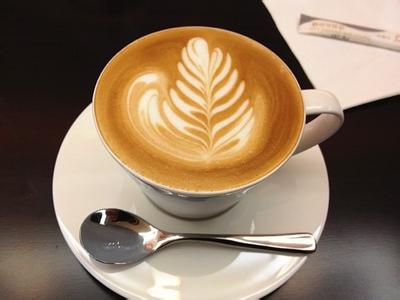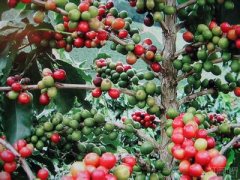The largest number of coffee shops in Hong Kong are Starbucks and Pacific Cafe.

Starbucks and Pacific Coffee shops are probably the most popular in Hong Kong, where you can also meet friends, do business, drink coffee, flip through your magazines or books, track the stock market with your computer or ipad, and browse world events. However, compared with the coffee shop or teahouse in Taipei, there is a lack of humanistic, elegant, quiet and leisurely atmosphere.
With my friends in Taipei, I have visited many places suitable for sitting down for a leisurely afternoon tea or spending an evening in a teahouse (coffee shop). Under the dim light, in the hidden corner, on the comfortable seat, drink a cup of tea (coffee), quietly listen to the murmur of friends, talk about the sweetness and bitterness of life, gently sigh the confusion of work, slowly sort out the thoughts in your heart, and slowly outline the vision of the future. As we drink and talk more and more, we forget the world outside the window. We pour out our secrets, our longing for the future, our wishes for life, and all the words we want to say, and share with our friends the fragrance of tea in the air. The heart is full of freedom, the relief of bosom friends, "the geometry of life, the satisfaction and relaxation of Chadang Song". Forget the time, forget the wind and rain outside, forget the troubles and resentments of a minute ago, just need a pot of good tea to accompany.
Many times as soon as dinner was over, the friend immediately continued to say, "Let's go for tea." So I couldn't bear it as I wanted to break up, and everyone who was still having fun found a teahouse (coffee shop) to sit in and continue our "drinking march" until they closed. I wonder if there are teahouses open all night in Taipei? No one's taken me there anyway. Such a place fascinates me. To tell you the truth, it is not necessarily that its tea is better than that of Hong Kong, and that its coffee is purer than that of Hong Kong, but that it is free and leisurely in the air and makes people calm down and whisper. The charm of life is tasted in elegance and elegance.
This kind of atmosphere can be felt not only at that time, but also in the distant future. And what kind of smell is accumulated by culture? When friends talk about this, some people always sigh: God really has eyes, so that traditional culture will not be completely destroyed, and a pure land has been preserved.
Important Notice :
前街咖啡 FrontStreet Coffee has moved to new addredd:
FrontStreet Coffee Address: 315,Donghua East Road,GuangZhou
Tel:020 38364473
- Prev

Coffee Common sense the Dream of the Cafe at Night
Van Gogh's passion came from the world he lived in, from the irrepressible reactions of the people he knew. This is by no means the simple reaction made by a primitive man or a child. The letter he wrote to his brother Theo was the most touching story ever written by an artist. The letter shows his highly sensitive perception, which is exactly in line with
- Next

Coffee common sense good coffee that consumers like.
Boutique coffee is the most suitable for French dim sum macarons, which will have a long aftertaste after being tasted carefully. This is different from contact with civilian traditional coffee, high-quality coffee gives people a sense of nobility, this contact is the successful roasted coffee raw beans sent to the evaluation of countries around the world, the Italian star Expresso who scored 96 out of 100 (hereinafter referred to as the meaning)
Related
- Beginners will see the "Coffee pull flower" guide!
- What is the difference between ice blog purified milk and ordinary milk coffee?
- Why is the Philippines the largest producer of crops in Liberia?
- For coffee extraction, should the fine powder be retained?
- How does extracted espresso fill pressed powder? How much strength does it take to press the powder?
- How to make jasmine cold extract coffee? Is the jasmine + latte good?
- Will this little toy really make the coffee taste better? How does Lily Drip affect coffee extraction?
- Will the action of slapping the filter cup also affect coffee extraction?
- What's the difference between powder-to-water ratio and powder-to-liquid ratio?
- What is the Ethiopian local species? What does it have to do with Heirloom native species?

